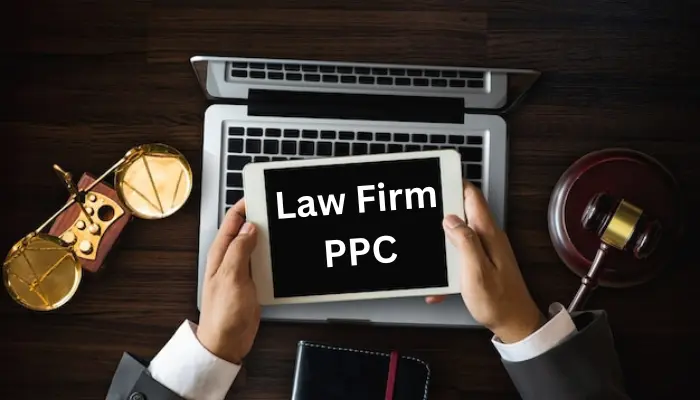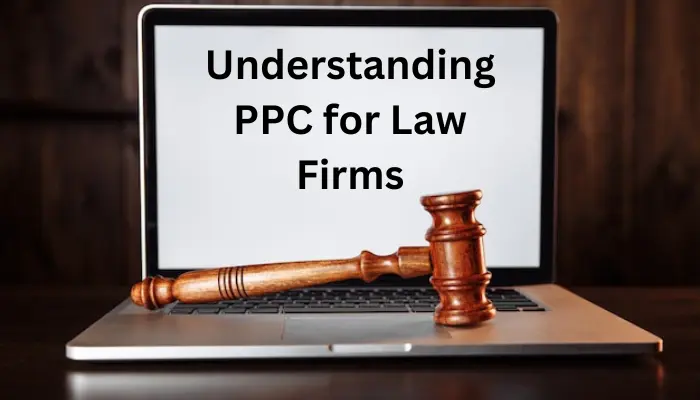Local SEO Services Near Me | Local Pro1 Welcome to...
Boost Your Firm’s Reach| Local Pro1’s Expertise in Law Firm PPC
Boost Your Firm's Reach| Local Pro1's Expertise in Law Firm PPC
Law Firm PPC, or Pay-Per-Click advertising for law firms, is a digital marketing strategy where law firms create and run online advertisements. These ads are displayed on search engines and various online platforms, and the law firm pays a fee each time their ad is clicked. The goal of Law Firm PPC is to drive targeted traffic to the law firm’s website, increase online visibility, and ultimately attract potential clients who are actively searching for legal services.

Importance of PPC for Law Firms
Targeted Advertising: PPC allows law firms to target specific keywords and demographics, ensuring their ads are seen by individuals actively searching for legal services. This targeted approach increases the likelihood of reaching potential clients who need legal assistance.
Immediate Visibility: Unlike organic search engine optimization (SEO) which takes time to yield results, PPC provides immediate visibility. Legal firms can boost their visibility at the top of search engine results pages (SERPs) and other online directories to draw in more potential customers.
Cost-Effective: PPC operates on a pay-per-click model, meaning law firms only pay when someone clicks on their ad. This cost-effective approach allows firms to manage their budget efficiently and allocate resources to campaigns that yield the best results. Local Pro1 provides the best service related to Law Firm PPC.
Measurable Results: PPC campaigns offer detailed analytics, allowing law firms to track the performance of their ads. Metrics such as click-through rates, conversion rates, and cost per click provide valuable insights, enabling firms to make data-driven decisions and optimize their campaigns for better results.
Geotargeting: Law firms can target specific geographical areas with PPC advertising. This is particularly beneficial for local or regional firms looking to attract clients in specific locations, ensuring their ads reach the right audience in their target market.
Competitive Advantage: PPC can provide a competitive edge in a competitive legal landscape. By strategically bidding on relevant keywords and crafting compelling ad copy, law firms can position themselves prominently in front of potential clients, outperforming competitors in the online space.
What is a Law Firm PPC?
Law Firm PPC (Pay-Per-Click) refers to the use of online advertising in the legal industry where law firms create and run digital advertising campaigns to attract potential clients. PPC is a form of internet marketing in which advertisers pay a fee each time their ad is clicked. It’s a way to buy visits to your website rather than earning them organically.
Overview of PPC (Pay-Per-Click):
Pay-Per-Click is an online advertising model where advertisers bid on keywords relevant to their target audience. When users search for these keywords on search engines like Google, the ads appear at the top or bottom of the search results. Pay-per-click gets its moniker because advertisers only have to pay when a user clicks on their advertisement.
Application of PPC in the Legal Industry:
In the legal industry, PPC is used by law firms to increase their online visibility and generate leads. Legal services are often sought through online searches, making PPC consultants an effective way for law firms to connect with potential clients. Lawyers bid on keywords related to their practice areas, and their ads appear when users search for legal advice or services. This targeted approach helps law firms reach individuals actively seeking legal assistance.
Key Components of Law Firm PPC:
Keyword Research: Finding pertinent keywords that prospective clients might use to find legal services is known as keyword research.
Ad Creation: Designing compelling and informative ads that encourage users to click.
Landing Pages: Creating dedicated web pages that align with the ad content, providing a seamless user experience.
Bid Management: Setting and managing the bid amount for each keyword to control advertising costs.
Targeting: Defining the geographic locations and demographics of the audience to narrow down the reach.
Tracking and Analytics: Implementing tools to monitor the performance of the PPC campaign, including click-through rates, conversion rates, and return on investment (ROI).
Understanding PPC for Law Firms

How PPC Works for Law Firms:
Using pay-per-click (PPC) advertising, legal companies can place their adverts on search engines and other online directories. Here’s how PPC works for law firms:
Ad Creation: Law firms create compelling advertisements containing relevant keywords and a compelling call-to-action.
Keyword Selection: Law firms choose keywords related to their legal services. These keywords trigger the display of their ads when users search for those terms.
Bid Auction: Advertisers bid on the selected keywords in an auction system. The bid amount represents the maximum they will pay for a click on their ad.
Ad Placement: The search engine (e.g., Google) determines ad placement based on a combination of bid amount and ad relevance. Ads are displayed prominently on search engine results pages (SERPs) or other online platforms.
Cost Per Click (CPC): Advertisers are charged when users click on their ads. The cost per click is the amount paid for each click on the advertisement.
Ad Ranking: The ad’s position on the SERP is influenced by the bid amount, ad quality, and other factors. Higher-ranking ads are more likely to be clicked.
Common Terms and Metrics in Law Firm PPC:
Click-Through Rate (CTR): The percentage of users who click on an advertisement after viewing it is measured by CTR. It is calculated by dividing the number of clicks by the number of impressions (views) and multiplying by 100.
Quality Score: Quality Score is a metric used by search engines to evaluate the relevance and quality of ads, keywords, and landing pages. It affects ad position and CPC.
Conversion Rate: The conversion rate measures the percentage of clicks that result in a desired action, such as filling out a contact form or making a phone call.
Impressions: Impressions represent the number of times an ad is displayed to users.
Ad Extensions: Additional information, such as location, phone number, or site links, that can be added to an ad to provide more details and encourage interaction.
Importance of Targeted Keywords in Legal PPC Campaigns:
Relevance: Targeted keywords ensure that your ads are shown to users actively searching for legal services, increasing the likelihood of attracting qualified leads.
Cost Efficiency: Using specific keywords relevant to your legal practice helps in avoiding irrelevant clicks, reducing wasted ad spend, and improving the overall cost efficiency of the campaign.
Higher Quality Scores: Targeted keywords contribute to a higher Quality Score, positively impacting ad rankings and reducing the cost per click.
Better Ad Positioning: Using precise keywords increases the chances of your ad appearing in the top positions on SERPs, leading to more visibility and clicks.
Improved User Experience: Users are more likely to engage with ads that directly address their search queries, creating a positive experience and potentially leading to conversions for your law firm.
Law Firm PPC Advertising Strategies
Crafting Effective Ad Copy for Law Firms:
Clarity and Conciseness:
- Ensure that your ad copy is clear, concise, and directly communicates the services your law firm provides.
- Use language that is easily understandable for your target audience, avoiding legal jargon.
Highlight Unique Selling Proposition (USP):
- Identify and emphasize what sets your law firm apart from competitors.
- Showcase any awards, recognitions, or specialized expertise that can distinguish your firm.
Incorporate Call-to-Action (CTA):
- Include a compelling CTA that encourages potential clients to take action, such as contacting your firm for a consultation.
- Use action-oriented language to prompt immediate engagement.
Include Keywords:
- Integrate relevant keywords in your ad copy to enhance search engine visibility and attract users actively searching for legal services.
- Align your copy with common search queries related to legal needs.
Targeting Relevant Audiences in Legal PPC:
Geo-Targeting:
- Narrow down your target audience by geographic location to ensure your ads are reaching potential clients in specific regions.
- Utilize location-based keywords to enhance local relevance.
Demographic Targeting:
- Identify the demographics of your ideal clients and tailor your ad campaigns accordingly.
- Adjust bid strategies based on factors like age, gender, and income level.
Device and Time-Based Targeting:
- Analyze when and how your target audience is most active online, adjusting your ad schedule accordingly.
- Optimize ad campaigns for various devices, considering the preferences of your audience.
Remarketing:
- Implement remarketing campaigns to re-engage users who have previously visited your website.
- Customize ad content to address specific needs or concerns identified during their initial visit.
Utilizing Ad Extensions for Law Firm PPC:
Location Extensions:
- Enhance local visibility by including location extensions, providing potential clients with essential contact information and directions.
Call Extensions:
- Enable call extensions to make it easy for users to contact your firm directly from the search results.
- Highlight specific phone numbers for different practice areas, if applicable.
Sitelink Extensions:
- Direct users to specific pages on your website by incorporating sitelink extensions.
- Tailor these links to guide users to relevant information, such as practice areas or attorney profiles.
Review Extensions:
- Showcase positive reviews and testimonials by incorporating review extensions, building credibility and trust with potential clients.
Budgeting and Bid Strategies in Law Firm PPC:
Keyword Research:
- Conduct thorough keyword research to identify high-impact and relevant keywords for your law firm.
- Allocate budget based on the competitiveness and importance of keywords.
Ad Position and Click-Through Rates (CTRs):
- Monitor ad positions and adjust bids to secure optimal placements on search engine result pages.
- Focus on improving ad relevance and CTRs to positively impact Quality scores and lower costs.
Budget Allocation by Practice Area:
- Allocate budget based on the profitability and priority of different practice areas.
- Adjust bids to reflect the value of leads generated from each area.
Conversion Tracking:
- Implement conversion tracking to measure the effectiveness of your PPC campaigns.
- Use data to refine budget allocation and bid strategies for better ROI.
Benefits of Law Firm PPC

Increased Visibility and Brand Awareness:
Law firm PPC (Pay-Per-Click) advertising can significantly boost the visibility of a law firm online. By strategically placing ads on search engines and other platforms, potential clients are more likely to discover and become familiar with the law firm’s brand.
Lead Generation for Law Firms through PPC:
PPC management campaigns allow law firms to target specific keywords and demographics, ensuring that their ads reach a relevant audience. This targeted approach can lead to increased lead generation, as individuals actively searching for legal services are more likely to click on the ads and inquire about the firm’s services.
Tracking and Measuring ROI in Law Firm PPC:
PPC platforms provide robust analytics tools that allow law firms to track and measure the return on investment (ROI) of their advertising campaigns. This data includes valuable insights such as click-through rates, conversion rates, and cost per conversion. This information helps firms optimize their campaigns for better results and a higher ROI.
Competitive Advantage in the Legal Industry:
In the highly competitive legal industry, having a strong online presence is crucial. Law firm PPC can provide a competitive advantage by ensuring that the firm’s ads appear prominently in search results. This visibility can make the firm stand out from competitors, attract more clients, and establish itself as a reputable choice in the legal market.
Conclusion
Pay-per-click (PPC) advertising stands as a potent and strategic tool for law firms navigating the competitive digital landscape. Through this analysis, we’ve highlighted the critical role PPC plays in enhancing online visibility, targeting specific audiences, and ultimately driving growth for legal practices. Law firms should recognize the dynamic nature of online marketing and the evolving ways in which potential clients seek legal services. By leveraging PPC campaigns effectively, firms can position themselves in front of individuals actively searching for legal representation, thereby increasing the likelihood of conversion. Feel free to contact us for any types of query or services related to Law Firm PPC.
FAQs
What Is Law Firm Ppc?
Law Firm PPC (Pay-Per-Click) refers to a digital advertising model where law firms create and run online ads. Advertisers only pay when their ad is clicked, making it a cost-effective way to drive targeted traffic to their website.
How Does Law Firm Ppc Work?
Law Firm PPC works by bidding on keywords related to legal services. When someone searches for those keywords, the ads appear at the top of search engine results. Advertisers pay for each click on their ad, and the goal is to convert those clicks into potential clients.
Why Should A Law Firm Consider PPC Advertising?
PPC advertising allows law firms to target specific audiences actively searching for legal services. It provides immediate visibility on search engines, increases brand awareness, and can generate leads quickly. It offers measurable results, enabling firms to track and optimize their campaigns.
What Platforms Can Law Firms Use For Ppc Advertising?
Common platforms for Law Firm PPC include Google Ads and Bing Ads. These platforms allow firms to create text, display, and video ads that appear on search engine results pages when potential clients are searching for relevant legal services.
How Do I Choose The Right Keywords For My Law Firm PPC Campaign?
Select keywords that are relevant to your legal services and have a high likelihood of being used by potential clients in their search queries. Consider using long-tail keywords for more targeted and cost-effective campaigns.
Our Services
Our Latest Posts
PPC White Label Services by Local Pro1 | Expert Solutions
PPC White Label Services by Local Pro1 | Expert Solutions...



